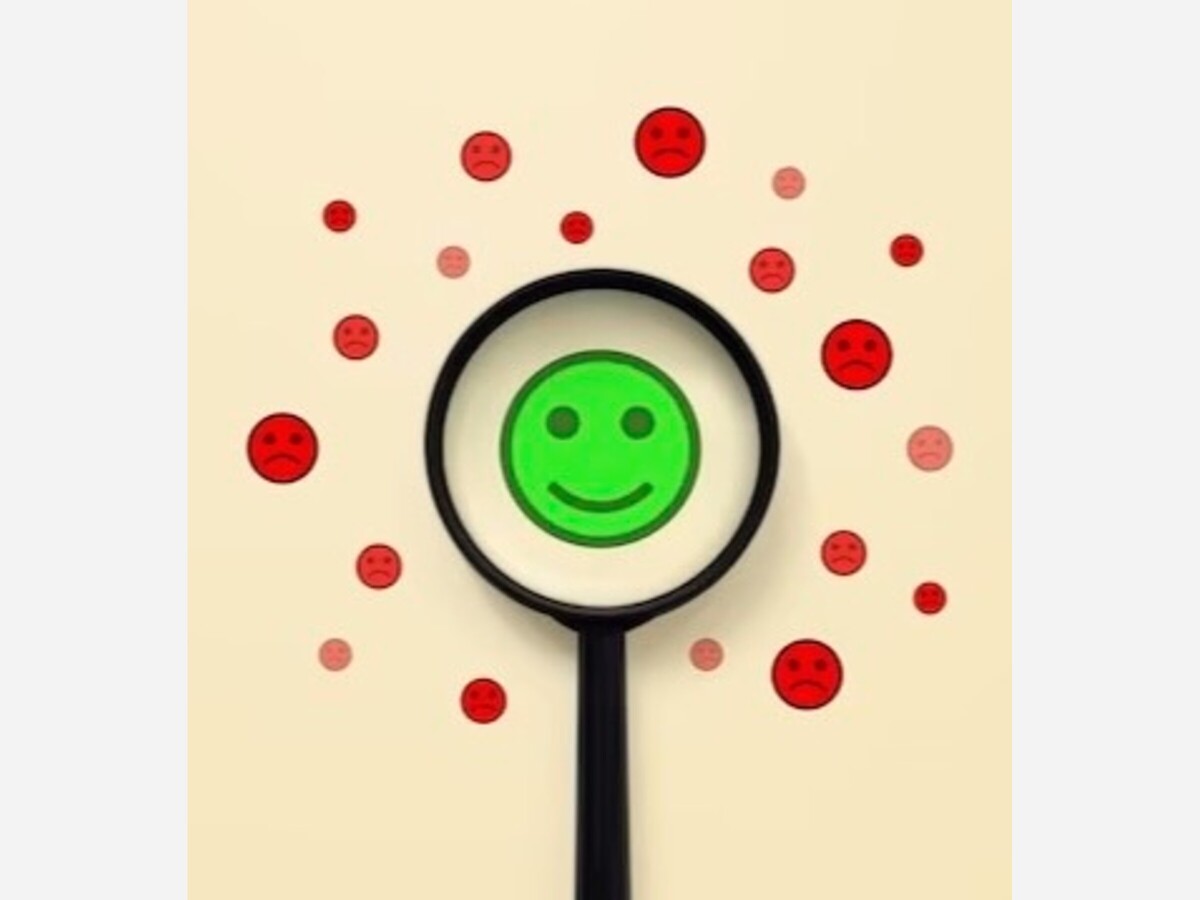Image

[The following commentary by Craig Bennett is in response to an article by Jane Stahl that was published a few days ago. If you missed that original article, you can read it here.]
by Craig Bennett *
A friend recently emailed me an article about “toxic positivity.” It’s all about how so many of the neat little aphorisms you hear from other people when your life seems to be falling apart can actually have the opposite effect from the one they intended.
Among other things, it reminded me very much of the motivational posters I’ve seen on the walls of school buildings here and there. “Hitch your wagon to a star!” they say, quoting Walt Whitman. Or, “You can be anything you want to be!” “Let your dreams be your compass!” and similar affirmations.
When I see such things intended to inspire young people on to ever greater achievement, I have to think of the kid who is still 4’8” at the age of fifteen and built like a fire hydrant with feet but really, really wants to play pro basketball in the NBA. Or the kid with a well below average I.Q. who dreams of being an astronaut. Or the tone-deaf kid who yearns to sing professionally at weddings and other special occasions. Or the many others who have been duped by such pablum into believing that they can somehow surpass the capabilities with which they’ve been naturally endowed by pure effort of will.
Are they headed for disappointment? I’ll give you one guess. This strikes me as still another area where toxic positivity can rear its happy, smiling, cruelly misleading head.
But I digress. The article in question dealt with such comforting offerings as, “Everything happens for a reason,” or “Have an attitude of gratitude,” or “What doesn’t kill you makes you stronger.”
One of the lamest of these I’ve ever encountered is, “When life hands you lemons, make lemonade!” I had a good friend who was fifteen years older than I and had dealt with cerebral palsy from the time she was a young child. She had adapted to her disability quite admirably. She was proudly independent, intelligent, educated, and interested in writing. Among other things, she wrote speeches for politicians, including a few in Harrisburg and one in Washington.
But her life was a constant struggle physically, and her ex-husband, her three sons, her meager income, and an array of other personal problems provided her with enough stress to drive any three or four “normal” people into the looney bin. She should have had an “attitude of gratitude”? For what? And if someone had suggested to her that she just “make lemonade” out of all her difficulties, I imagine that she’d have popped them one on the nose. And if she didn’t, I would have.
About twelve or fifteen years ago I was participating in a discussion group where one of the members had spoken in glowing terms of a recently published book by a sort of happiness guru who had made a career of studying what made people happy and helped them to overcome the difficulties in their lives.
I was curious, so I obtained a copy and read it. The gist of his advice? Just let the negativity flow right through you. Don’t think of it as harmful. Play with it. Have fun with it. (Honest. He really said that.) It made me think back several years to July of 2004, when I was diagnosed with a highly unusual form of lymphoma for which, at the time, there was no effective treatment.
Doctors could, at best, put into remission for a year or a year-and-a-half before it came back a little nastier and harder to treat than before. But I didn’t even ask how many times one could go through that cycle before it became completely pointless. So tell me, Mr. Happiness Guru, just how would you suggest that I might have “played with” and “had fun” with such a diagnosis? (Fortunately, I qualified for a clinical trial at Fox Chase Cancer Center, and I’ve been cancer-free since March of 2005.)
The only such cliché I know of that makes sense and applies to just about any unpleasant situation you might find yourself stuck in is, “This, too, shall pass.” And no matter what it is, indeed it will. You just need to wait it out.
But the one that holds a good deal of personal meaning for me is something my dad used to tell me when I was suffering through still another adolescent trauma: “Nothing is the end of the world except the end of the world.”
During the darkest days of my divorce, I thought of that and realized the truth of it. No matter what happens to me (or you, or anyone else), the sun will still come up tomorrow, the birds will still sing, the grass will still grow, and the rest of the world will get up and go about its business.
So I had to hurt for a while; but every day that passed brought me a little closer to the one when, finally, “this, too” shall have passed. And, sure enough, it did.
* Craig H. Bennett, author of Nights on the Mountain and More Things in Heaven and Earth, available at amazon.com, barnesandnoble.com, and the Firefly bookstore, Kutztown, PA (source: Michael Singer, The Untethered Soul)
With you on many of these points, Craig. Thank you for your essay.
When I'm in a negative or upsetting place, I'm not going to be looking at the bright side and squeezing out fresh juice. When I've struggled through a difficult time, the LAST thing I want to hear is, "Everything happens for a reason." (This line has become a *favorite* to repeat to women who have experienced a miscarriage— implying that this is "God's will" or the fetus was somehow damaged and who wants a defective child anyway?) Hideous!